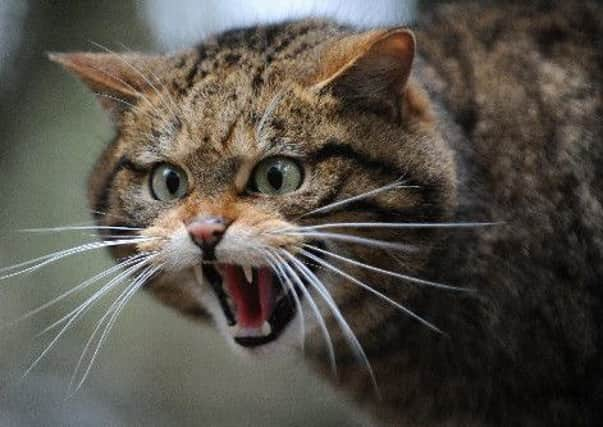New campaign launched to save Scotland's elusive wildcat


People across the country are being urged to help protect the endangered species by ensuring domestic and feral cats cannot interbreed with them and transmit diseases.
Estimates suggest fewer than 300 wildcats remain in the wild but experts behind a national conservation plan believe micro-chipping, neutering and vaccinating pet and farm cats can save their wild relatives from extinction.
Advertisement
Hide AdAdvertisement
Hide AdAs well as benefitting wildcats, the measures will prevent conditions like feline leukaemia and feline aids from spreading and reduce the chances of pet cats getting lost or having unwanted kittens.
The main threat to the survival of wildcats is hybridisation, but diseases and accidental killing by gamekeepers targeting feral cats are also risks.
Scottish wildcats are protected by law, so it is illegal to harm or disturb them.
The new campaign is being spearheaded by Scottish Wildcat Action (SWA), a state-backed scheme to halt the decline of the species by 2020.
SWA, a partnership of 20 organisations, is led by Scottish Natural Heritage (SNH) with Heritage Lottery funding.
SNH’s Dr Roo Campbell, priority areas manager for SWA, said: “We know a few wildcats are still out there, but they face serious threats. To increase their numbers it’s really important that they have more wildcat kittens and not the hybrid kittens born from mating with domestic cats.”
Vets have also joined the campaign and recommend cats should be neutered from four months of age.
“Cats will mate with even their own brothers or sisters, so it’s important to neuter before they become sexually mature,” according to Dingwall vet Alice Bacon.
Advertisement
Hide AdAdvertisement
Hide AdResearch confirms wildcats can contract the same diseases as domestic cats.
Professor Anna Meredith, from Edinburgh’s Royal (Dick) School of Veterinary Studies, added: “Diseases that are a threat to both domestic cats and wildcats include feline leukaemia and feline aids. The best way to provide protection from these fatal diseases and other threats is to both neuter and vaccinate domestic cats.”
SWA is working across six priority areas, highlighted as potential wildcat hotspots.
So far 19 wildcats have been identified from footage captured on 347 trail cameras in the Angus glens, Movern, northern Strathspey, Strathavon, Strathbogie and Strathpeffer.
Free neutering is available for some cats within the these priority areas.